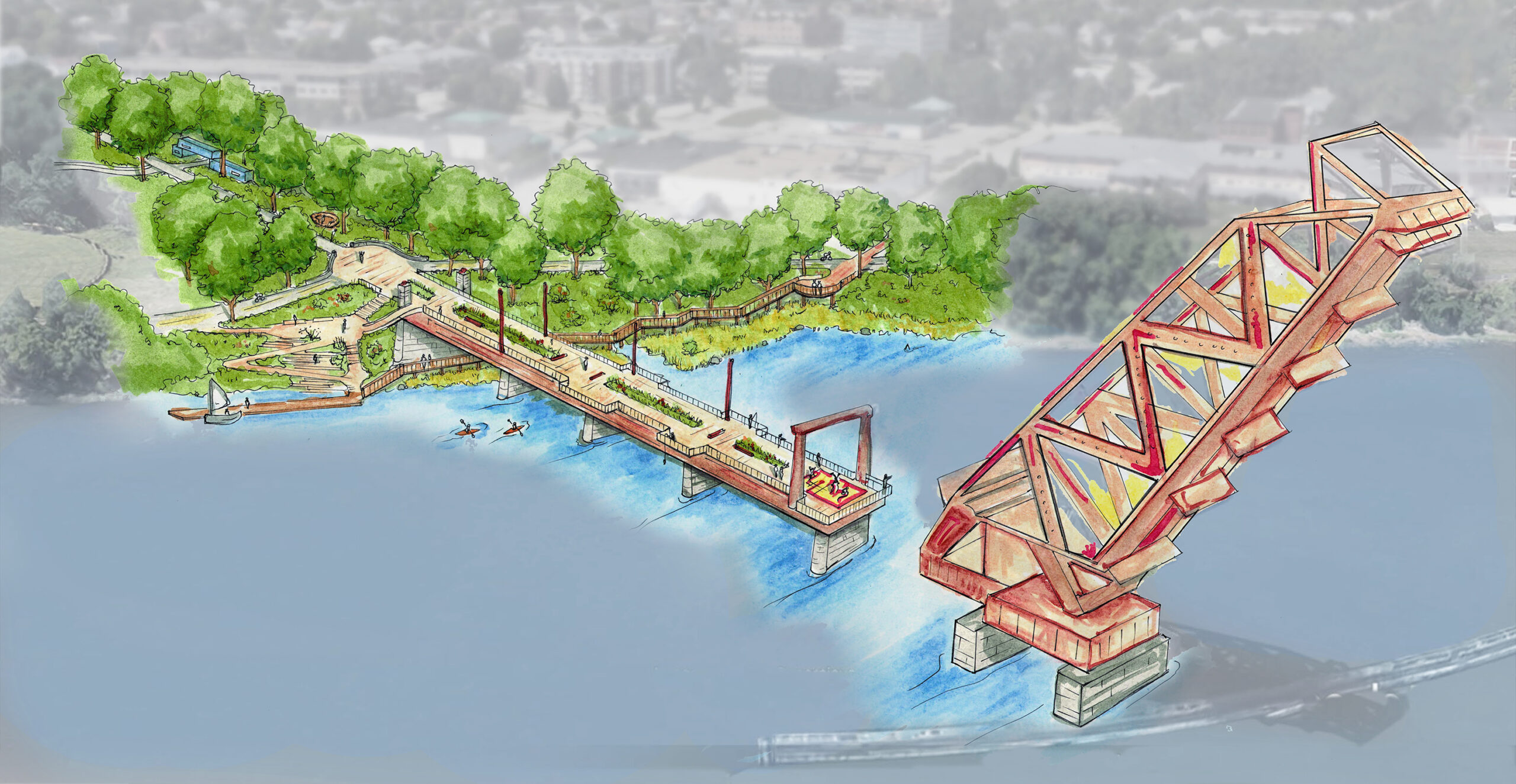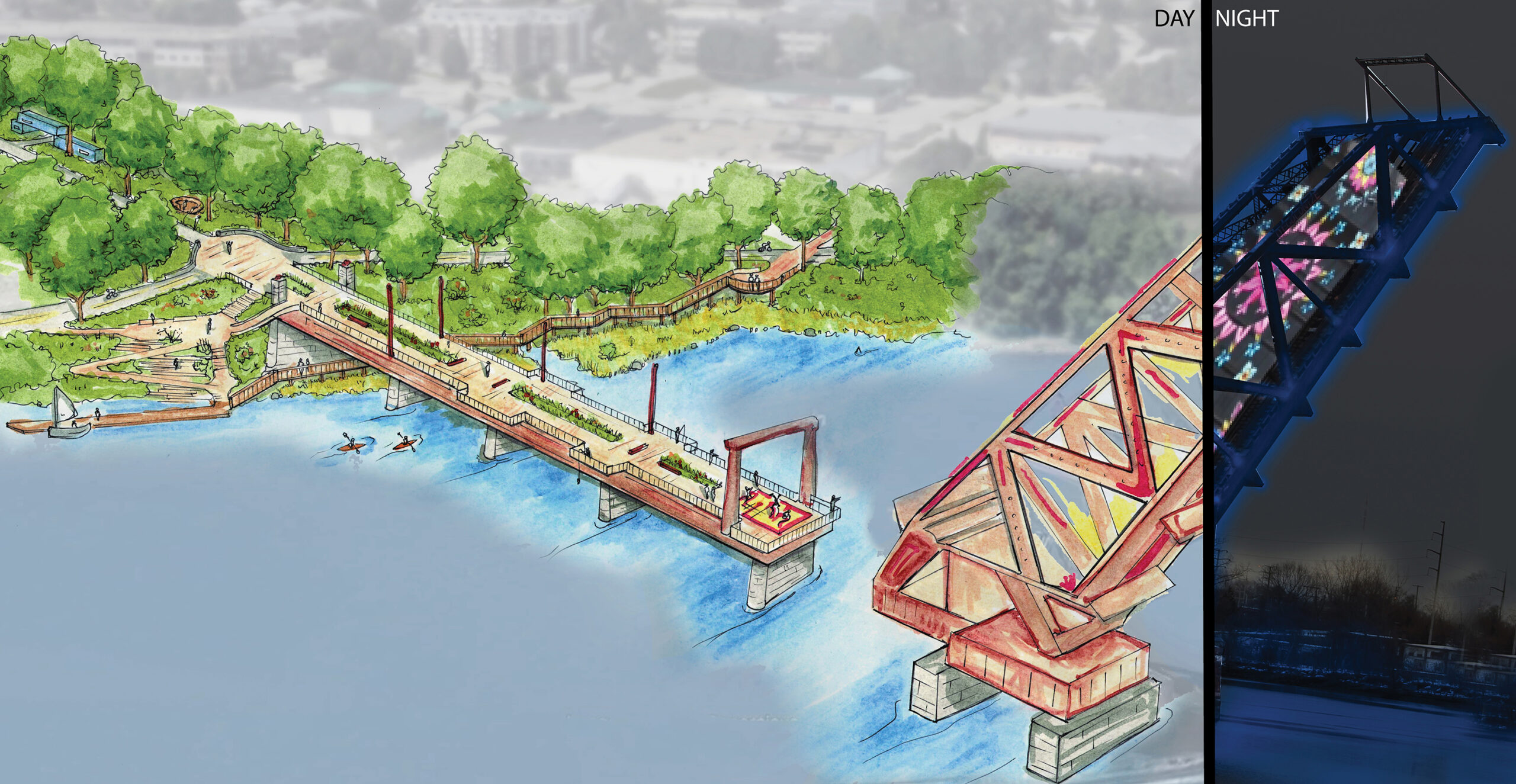CNU New England award
Reuse Design of the Iconic Crook Point Bascule Bridge
PRESS RELEASE
Sandwich, Mass., October 2, 2023 – Horsley Witten Group, a full-service environmental consulting firm providing sustainable and resilient design solutions, has been honored with a regional award for its reuse design of the iconic Crook Point Bascule Bridge and revitalization of the Seekonk River shoreline in Providence, Rhode Island.
Horsley Witten Group, along with project partners Jonathan Harris, Abernathy Lighting, and the City of Providence, received the 2023 Excellence in Urbanism Award on Thursday, September 14th at the Fall Summit of the New England Chapter of the Congress for the New Urbanism (CNU New England). In selecting the 2023 winners, CNU New England prioritized projects that contribute to the creation of walkable, sustainable and equitable places in New England. The project proposal is also the winner of an international design competition hosted by the City of Providence.
The award was accepted by Horsley Witten’s Jon Ford, Johnson and Wales University Professor Jonathan Harris, and Joseph Mulligan III, director of planning and development for the City of Providence.

“I am so grateful to be accepting this award on behalf of Horsley Witten Group and our team of collaborators,” said Jon Ford, Senior Associate-of Community Design . “We knew it was important that our design focus on climate-based resiliency, provide a welcoming environment for all, and to celebrate the bridge structure’s iconic status, while creating improvements that are realistic and cost-effective – we are looking forward to working with the city to implement the vision.”
The Crook Point Bascule Bridge originally built in 1908 to provide a direct link between the Providence, New York-New Haven, and Hartford rail lines, once connected the cities of Providence and East Providence over the Seekonk River. It has been fixed in the upright position since its abandonment in 1976, becoming a local icon and point of fascination for local neighborhoods and beyond.
Horsley Witten Group’s design calls for a series of unique riverfront public spaces to connect people physically and visually to both a restored riverbank and a celebrated bridge structure, the existing remnants of which were originally planned for demolition. The CNU New England Jury noted how the project underscores the need to preserve and renew historical landscapes which in turn affirm the continuity and evolution of urban society.

